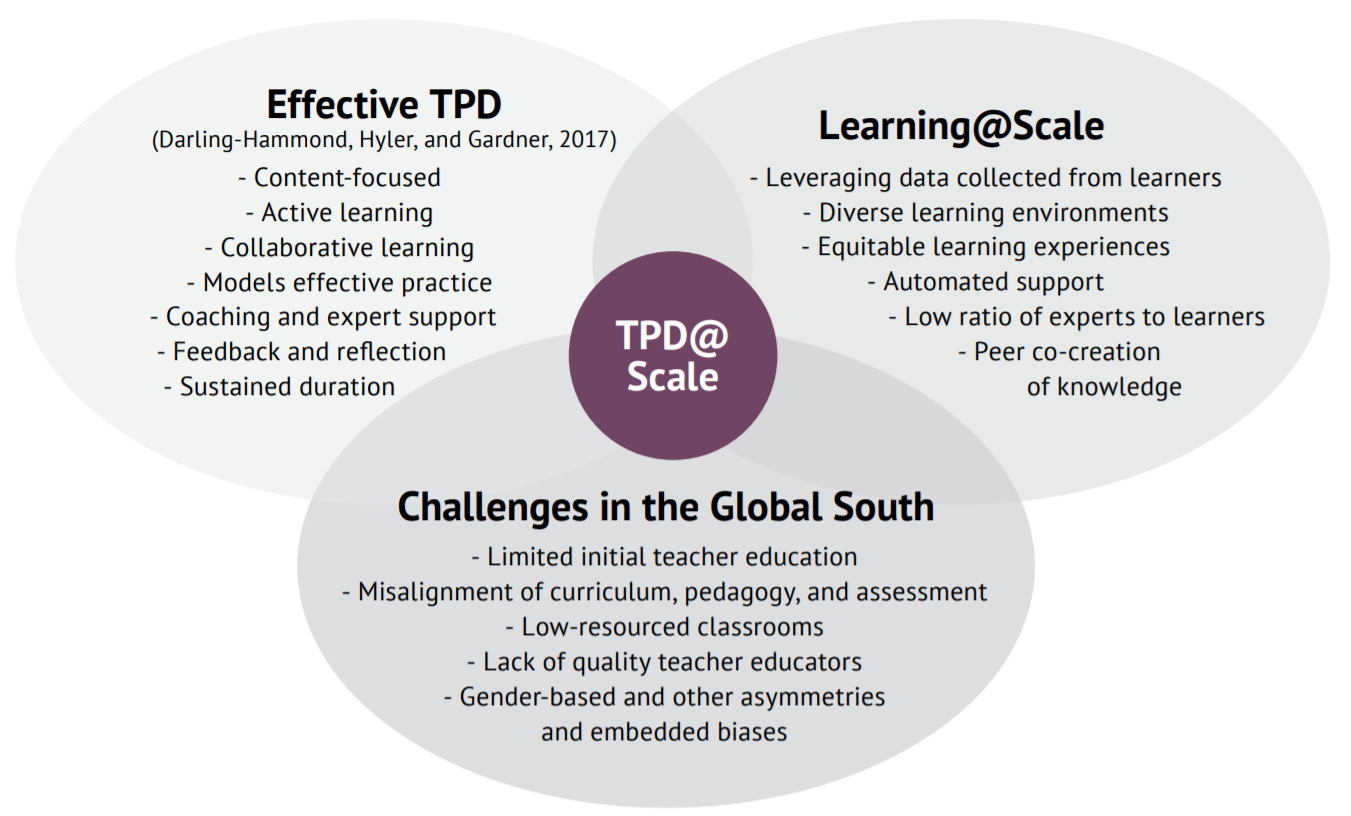Global challenges and TPD@Scale
1.8 Global challenges and evidence of what works
Across the globe, there is an urgent need to improve inclusion in education and improve learning outcomes. An estimated 258 million children, adolescents, and youth are not in school, and a majority of school-age children in low- and middle-income countries are not achieving minimum proficiency in basic skills.
Empowered, motivated, and capable teachers are central to changing this situation. The connection between quality teaching and learning outcomes is well-documented. This demands high-quality, equity-focused TPD for all teachers.
School- and classroom-based learning can make a powerful impact on teachers’ ways of observing, thinking and acting. For teachers, learning through practice is equitable, because all teachers can access it. Learning through practice is also efficient, in terms of time and resourcing. The classroom and the school can be important locations for teacher development, where teachers can try out new ideas and methods, and see the impact on students.
There is not enough time, or resource, to take all teachers out of schools and into training institutions for periods of high quality TPD that is disconnected from their classroom realities. Professional learning and change must take place ‘on the job’, in schools and workplaces. It is the only way that scalable, sustainable teacher development that benefits children’s learning will happen.
TPD@Scale is based on two bodies of evidence:
- Effective TPD
- Effective learning at scale: learning environments where information and communication technologies (ICTs) help large numbers of learners to participate without having to be physically present in the same space
What do we know about effective TPD?
- It recognises teachers as professionals
- It is situated, authentic and practice based
- It is content-focused
- It involves active learning
- It promotes peer learning and collaboration in communities of teachers
- It models effective practice
- It helps teachers to focus on the learning needs of all their students
- It provides space for feedback and reflection
- It is for a sustained duration
- It offers coaching and expert support
What do we know about effective learning at scale, for example, in a Massive Open Online Course for thousands of teachers?
- There is a low ratio of experts to learners
- It can be applied in diverse learning environments
- It provides equitable learning experiences
- It provides automated content and support
- There is flexible access for learners
- It collects and analyses data from learners in order to improve the learning experience
- It support peer co-creation of knowledge
What are the challenges to high-quality, equitable TPD in the Global South?
- There is limited initial teacher education
- There is mis-alignment of curriculum, pedagogy and assessment
- There are low-resource classrooms
- There is a lack of quality teacher educators
- There are gender-based biases and other biases

